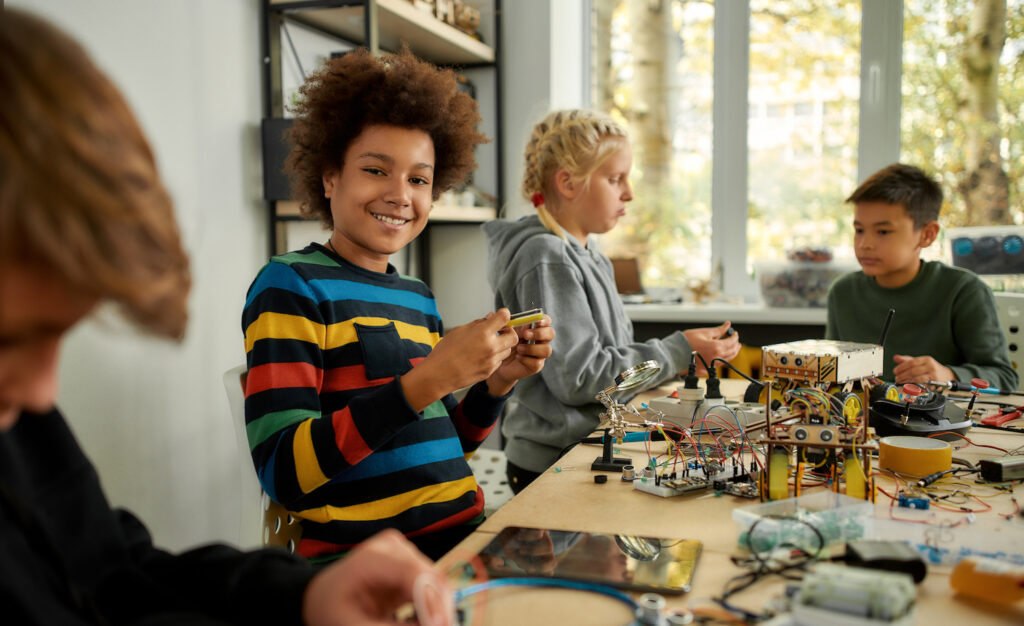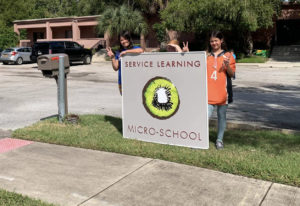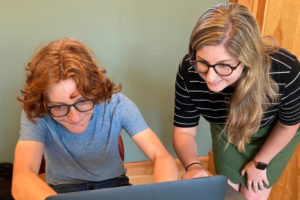Florida eases regulations on microschools, expanding access to locations without local government approval
Frank and Natalie Farro needed space in 2020 to start a microschool in Coral Springs, Florida. However, they couldn’t find a suitable place to host them long term.
“Location has been the…

Frank and Natalie Farro needed space in 2020 to start a microschool in Coral Springs, Florida. However, they couldn’t find a suitable place to host them long term.
“Location has been the hardest thing for us,” Frank said in an interview with The 74, a nonprofit news organization. The couple’s Acton Academy network school was kicked out of a commercial building after the COVID-19 pandemic and is now renting space at a local church.
“You have to find some mystical alignment of the universe in order to land a place that is zoned for a school – or you have to be massive, with a massive amount of capital, to go find another place.”
All this could change with a new Florida policy allowing private schools to use existing facilities under their current land-use and zoning regulations, bypassing local government approval.
“This is the silent friction point that has existed for years that no one could figure out how to solve,” said Ryan Delk, co-founder and CEO of the microschooling company Primer, in an interview with Politico.
‘Frameworks need to modernize’
The policy went into effect this July as part of an extensive overhaul of Florida’s education law.
“The little-noticed provision could become a blueprint for states across the country looking to expand private school options,” explains journalist Andrew Atterbury.
“Microschool proponents hope that the change could pave the way for a lofty goal of thousands of microschools in the country’s third largest state, and eventually across the country.”
An estimated 1-2 million children, or 2-4% of the U.S. school population, attended microschools full time in the 2022-2023 school year, and the movement continues to grow.
“Microschool is a broad term, but these schools typically enroll fewer than 30 students and are often led by one teacher,” Atterbury writes. “They can essentially pop up anywhere, like an office building or housing development, and can be run by entities varying from small businesses to co-ops to private schools.”
The Microschool Florida group already counts more than 250 microschools in its directory, and school choice proponents believe this change offers more solid educational options to parents.
“Broadly speaking, the frameworks need to modernize,” said Don Soifer, co-founder and CEO of the National Microschooling Center.
Existing regulations consider traditional schoolroom settings but not microschools, said Nathan Hoffman, senior legislative director for the Foundation for Florida’s Future.
“They’re only serving 30, 40, maybe 50 families,” he said. “They’re not serving hundreds of families. The size of the buildings that are necessary, the land that’s necessary, is not going to be the same.”
Michael McShane, director of national research at EdChoice, agrees.
The first generation of microschools met “in church basements or people’s homes,” he said. “They need to be able to operate in more readily available spaces.”
McShane also noted regulatory challenges facing educational entrepreneurs. In one example, a microschool founder installed half-inch drywall only to be told he needed to rip it out for a three-quarter-inch replacement.
‘Food trucks’ of the education industry?
Local governments have opposed the state policy, saying nearby residents “would lack the opportunity to voice concerns or influence the location of new private schools,” according to the Florida League of Cities.
Other critics include Josh Cowen, a professor of education policy at Michigan State University who is writing a book that takes aim at the school choice movement. He calls microschools the “food trucks of the new education industry.”
They “could pick up and leave tomorrow – or close altogether because the margins didn’t work for the business model,” he said.
However, Hoffman takes issue with the food truck analogy, calling it “extremely outdated,” like previous fears involving early homeschooling.
“That’s just not the case anymore,” he said of homeschool stereotypes confined to isolated, off-the-grid rural areas. “The fastest growing segment of the homeschool population are (urban) Black families.”
More than 450,000 students in the Sunshine State are using taxpayer-supported scholarships to attend private schools – including microschools, according to Hoffman.
“It’s created, I think, a whole new way that parents are interacting with K-12 education that we’re only just now getting to understand.”



